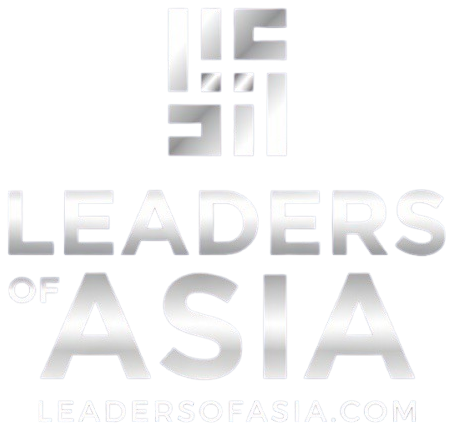Nasir Schon: Visionary Entrepreneur and Architect of the Schon Group’s Global Legacy
Early Life and Formative Years
Born on November 28, 1957, in Karachi, Pakistan, Syed Nasir Hussain Schon hailed from a family with a rich aviation background. His father, Captain Ather Schon Hussain, was a distinguished pilot with Pakistan International Airlines (PIA), instilling in Nasir the values of discipline and ambition from an early age.
Nasir’s educational journey took him to New York University, where he immersed himself in business studies. This academic foundation, combined with his innate entrepreneurial spirit, set the stage for a career marked by innovation and resilience.
The Genesis of the Schon Group
In 1971, Nasir Schon, alongside his brother Tahir H. Schon, co-founded the Schon Group. Initially establishing their presence in Singapore, the brothers ventured into the textile industry, launching Schon Textiles. This enterprise rapidly ascended to become one of Pakistan’s leading textile manufacturers, capitalizing on the country’s burgeoning export potential.
The 1980s and 1990s marked a period of diversification and expansion for the Schon Group. Recognizing opportunities across various sectors, the group ventured into banking with the establishment of Schon Bank, one of Pakistan’s pioneering private banks. Their portfolio further expanded to include National Fibres, Pak-China Fertilizers, and ventures in hospitality, aviation, and capital markets.
Venturing into Real Estate: The Dubai Chapter
The mid-1990s heralded a new era for the Schon Group as they set their sights on the Middle East, particularly the United Arab Emirates. In 1996, the group launched Schon Properties, marking their foray into real estate development. Initially focusing on leasing and building management, the company soon capitalized on Dubai’s real estate boom, transitioning into large-scale property development.
One of their flagship projects, Dubai Lagoon, envisioned a sprawling residential complex spanning 40 acres in Dubai Investment Park. Designed to house over 4,000 apartments across 49 buildings, the project aimed to offer modern amenities and a luxurious lifestyle. Despite facing challenges and delays, the project was revitalized and rebranded as AVA Designer Residences, with the first phase delivered in March 2015.
Another notable development was the Schon Business Park, launched in 2007. Strategically located in Dubai Investment Park, this office complex featured 410 offices, accommodating up to 4,000 employees. The project garnered acclaim, winning the CNBC Arabian Property Award for Best Office Development.
Commitment to Sustainable Development
Nasir Schon’s vision extended beyond mere construction; he was deeply committed to sustainable and environmentally conscious development. In 2008, Schon Properties pledged to incorporate LEED (Leadership in Energy & Environmental Design) standards across all future projects. Collaborating with LEED experts, the company aimed to ensure compliance with green building practices, emphasizing energy efficiency and environmental responsibility.
Innovations like the integration of Crystal Lagoons technology in the Dubai Lagoon project exemplified this commitment. This technology maintained large water bodies, preventing algae growth and ensuring water clarity, enhancing the aesthetic and environmental value of the development.
Philanthropy and Social Responsibility
Beyond his business endeavors, Nasir Schon was deeply invested in philanthropy. He established the Schon Foundation, focusing on providing healthcare, education, and social services to underprivileged communities in Pakistan. The foundation’s initiatives aimed to uplift marginalized populations, reflecting Schon’s belief in corporate social responsibility and community development.
Challenges and Resilience
The late 1990s presented significant challenges for the Schon Group. Political upheavals in Pakistan, particularly the dismissal of Prime Minister Benazir Bhutto in 1996, led to increased scrutiny and challenges for businesses associated with her administration. The Schon Group, known for its proximity to the Bhutto government, faced political and financial pressures, prompting the relocation of their operations to Dubai.
Despite these hurdles, Nasir Schon’s resilience and strategic acumen ensured the group’s survival and continued growth. By diversifying their portfolio and focusing on international markets, the Schon Group navigated turbulent times, emerging stronger and more globally integrated.
Legacy and Succession
Nasir Schon’s legacy is not only evident in the vast business empire he built but also in the values and vision he imparted to the next generation. His son, Danial Schon, has taken up the mantle, leading the group into new ventures and markets. Under Danial’s leadership, the group has expanded its global footprint, delivering over 1.65 million square feet of property worldwide and diversifying into sectors like fintech, hospitality, and technology.
Danial’s approach combines traditional business principles with modern innovation, reflecting his father’s influence and the evolving dynamics of global commerce.
Recognition and Honors
Nasir Schon’s contributions to business and society have been widely recognized. He served as the Honorary Consul-General of Sierra Leone in Karachi, strengthening diplomatic and economic ties between the two nations. His achievements have been documented in various publications, highlighting his role as a pioneering entrepreneur and philanthropist.
Conclusion
Nasir Schon’s journey stands as a powerful testament to vision, resilience, and adaptability. From his early ventures in Pakistan’s textile and banking sectors to his groundbreaking real estate developments in Dubai, Schon consistently demonstrated the ability to spot opportunities and turn them into thriving enterprises. Despite facing political upheavals, financial setbacks, and market challenges, he never abandoned his entrepreneurial spirit — instead, he pivoted, diversified, and expanded globally.
Beyond business, Nasir Schon’s commitment to philanthropy and social responsibility highlighted his belief that success carries an obligation to uplift others. Through the Schon Foundation, he invested in healthcare, education, and community development, leaving a tangible impact on countless lives. His enduring influence is also visible in the next generation, particularly through his son Danial, who continues to steer the Schon Group with innovation and global ambition.
Ultimately, Nasir Schon’s legacy is more than the sum of his projects, profits, or awards; it is a legacy of bold ideas, relentless perseverance, and a deep-seated drive to create positive change. His story continues to inspire entrepreneurs in Pakistan and around the world, reminding us all that true leadership is defined not only by success but by the ability to navigate challenges and leave a meaningful, lasting mark.






